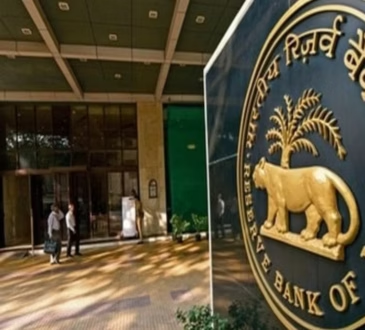“Markets are discovering the real Trump trade is ‘Sell America’,” say Saleha Mohsin and Carter Johnson on Bloomberg. Stocks soared late last year on bets that the incoming president would initiate an American golden age. It hasn’t worked out like that. The dollar has dropped 9% against other major currencies in 2025.
The US relies on international capital to finance its budget and trade deficits. As Torsten Slok of Apollo Management notes, foreigners own $19 trillion of US equities and $7 trillion of government bonds, equivalent to 20%-30% of the market. Those funds are now fleeing for more predictable climates.
Will the dollar continue to reign?
Trump served up fresh controversy last week, saying that the “termination” of Jerome Powell as Federal Reserve chair “cannot come fast enough!”. Trump is angry with Powell for not cutting interest rates, says Jeremy Warner in The Telegraph. Central banks “generally deserve whatever brickbats they get”, but it is considered “beyond the pale” for a sitting government to publicly criticise them. Central-bank independence is a “cornerstone” of modern economic policy for good reason: when politicians get their hands on rates, “they almost always abuse” the power.
Sign up to Money Morning
Don’t miss the latest investment and personal finances news, market analysis, plus money-saving tips with our free twice-daily newsletter
Don’t miss the latest investment and personal finances news, market analysis, plus money-saving tips with our free twice-daily newsletter
Trump probably doesn’t have the legal authority to remove Powell. On Tuesday, the president retreated from his comments, saying he would just “like to see” Powell “be a little more active”. The real purpose of the rhetoric? Preparing the ground to blame the Fed should Trump’s trade war cause an economic slump later this year, says Nick Timiraos in The Wall Street Journal.
On Trump’s telling, “Powell worked to help Biden during his term” with rate cuts, but is “unwilling to provide the same support” now. This overlooks that, first, it was Trump who originally appointed Powell in 2018; second, it was Powell who provided unprecedented economic support in 2020 when Trump was in office; and third it was Powell’s Fed that raised rates steeply in 2022 and 2023 during Biden’s term. This politicisation of the Fed is doing no favours to the dollar’s credibility.
“American prestige has taken a hit”, but King Dollar’s reign looks secure, says Daniel Moss on Bloomberg. The greenback’s role in world trade has survived previous American disasters, from the 1971 “Nixon shock” to the 2008 subprime mortgage crisis. Rather than a grand reordering of the global financial system, we may just be witnessing a “healthy” currency market correction after a period where the dollar was chronically overvalued.
The dollar has been the “lynchpin” of world trade for 80 years, with 88% of all foreign-exchange transactions involving greenbacks, says The Economist. A key argument for the currency is that there are no clear alternatives. China’s yuan cannot take over so long as Beijing keeps strict capital controls in place. As for the euro, while investors regard Berlin as a safer credit risk than Washington, the market in bunds is much shallower – just a 12th the size of that for US Treasuries. King Dollar will continue to reign, but its relative role will diminish as central banks pile into alternatives, including gold.
This article was first published in MoneyWeek’s magazine. Enjoy exclusive early access to news, opinion and analysis from our team of financial experts with a MoneyWeek subscription.




